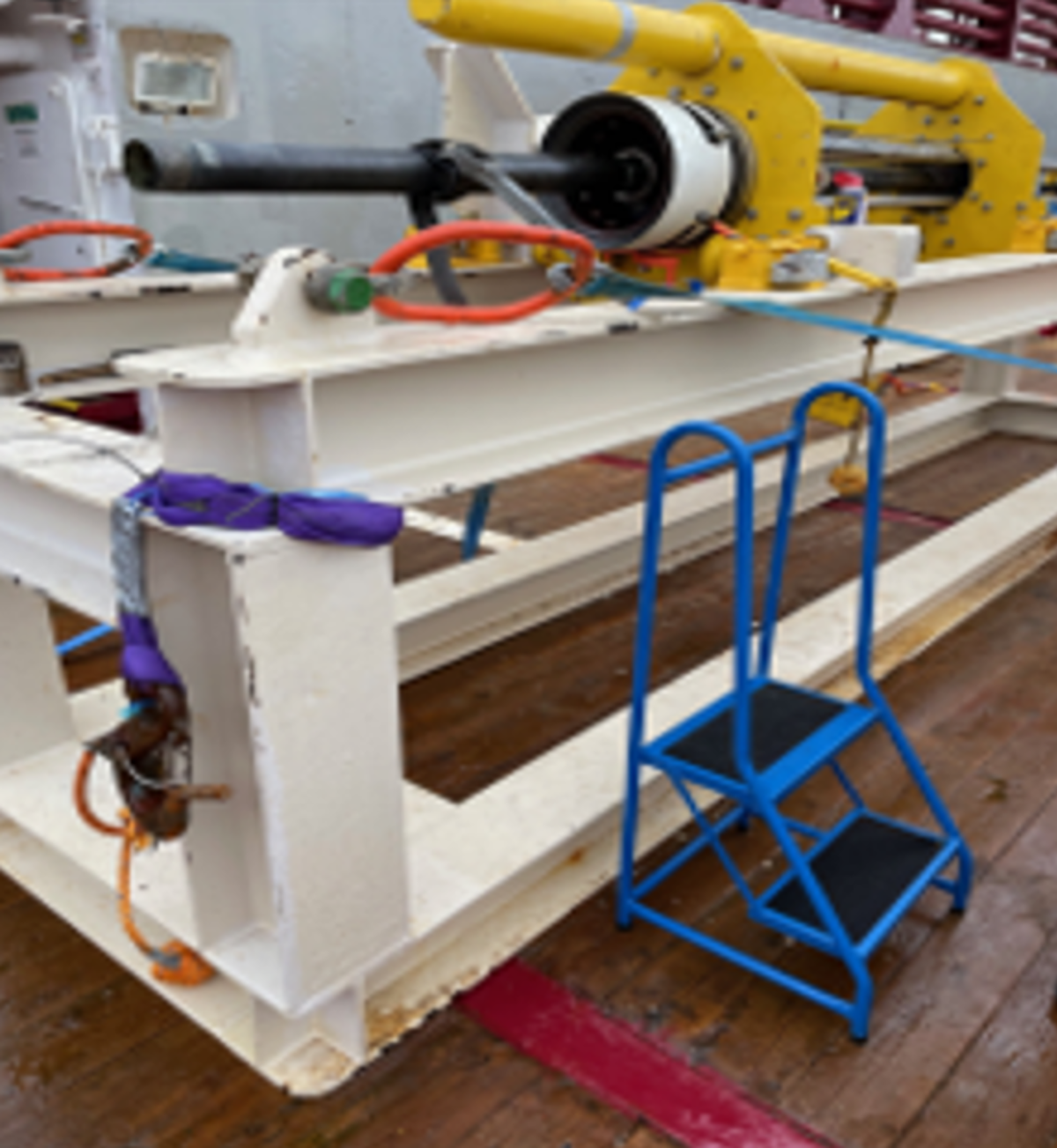LTI – person fell from step ladder
- Safety Flash
- Published on 29 August 2024
- Generated on 2 July 2025
- IMCA SF 17/24
- 2 minute read
Jump to:
A worker fell off a 2-step ladder/hop up and was injured resulting in an LTI.
What happened?
A tool required some maintenance before going into storage after use. To gain access to the tool and comfortably carry out the task, the worker needed to stand on a 2-step ladder/hop up.
While the worker was on the 2-step ladder/hop up, the vessel hit a wave and pitched, and this caused the worker to lose balance and fall. The step ladder/hop up went to the right and the person fell to the left struck their ribs on the frame of the tool and then fell to deck. In pain, the worker went to see the vessel medic, who after assessing the situation, transferred the worker ashore for further assessment and treatment. The diagnosis was a fractured rib. The worker was unable to return to work and went on sick leave.
The height from deck to the tool was 1.6m and the step ladder was 0.5m in height to the top step. At the time of the incident, the sea state was 2 m significant wave height, and the deck planks were wet.

Step-ladder/hop-up
What went wrong?
- The ladder/hop up was not secured to a fixed point as required in procedures.
- The hazard/risk of using the two-step ladder had been identified in the risk assessment, but the mitigating actions were not satisfactory. The equipment was not robust enough.
Lessons and actions
- Even falls from low heights can result in serious injuries.
- Could the work have been done when the sea was calmer?
- Ensure such equipment is properly secured before use.
- An engineered solution was to be prepared, for a fabricated access point on the tool frame, to negate the use of a temporary step ladder.
Related Safety Flashes
-
IMCA SF 31/20
10 November 2020
-
-
IMCA SF 08/23
27 March 2023
IMCA Safety Flashes summarise key safety matters and incidents, allowing lessons to be more easily learnt for the benefit of the entire offshore industry.
The effectiveness of the IMCA Safety Flash system depends on the industry sharing information and so avoiding repeat incidents. Incidents are classified according to IOGP's Life Saving Rules.
All information is anonymised or sanitised, as appropriate, and warnings for graphic content included where possible.
IMCA makes every effort to ensure both the accuracy and reliability of the information shared, but is not be liable for any guidance and/or recommendation and/or statement herein contained.
The information contained in this document does not fulfil or replace any individual's or Member's legal, regulatory or other duties or obligations in respect of their operations. Individuals and Members remain solely responsible for the safe, lawful and proper conduct of their operations.
Share your safety incidents with IMCA online. Sign-up to receive Safety Flashes straight to your email.